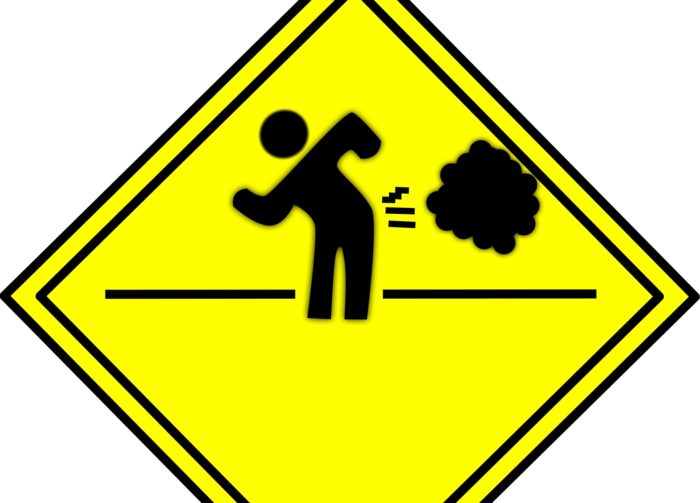Farts are a very universal phenomenon. It’s a biological process that happens inside everyone, irrespective of caste, creed, gender and even species. However, while the side-effects it has on other species is unknown right now, science has come to the conclusion that when you gotta go, you gotta go.
According to The Conversation, nutrition and dietetics professor Clare Collins of University of Newcastle has reported that if a person holds in their fart for a long time, it might expel through their mouth. The study says,

“Trying to hold it in leads to a build up of pressure and major discomfort. A build up of intestinal gas can trigger abdominal distension, with some gas reabsorbed into the circulation and exhaled in your breath. Holding on too long means the build up of intestinal gas will eventually escape via an uncontrollable fart.”
Apparently, the research is a bit sceptical on the fact that whether the rise in pressure in one’s rectum can cause a condition called diverticulitis. Just so you know, the condition causes small pouches to develop in the gut lining and become inflamed.
Coming to that conclusion wasn’t as easy as it sounds. Thankfully, she got 10 people to sign on for her experiment, got them to eat 200 gms of baked beans (along with their normal diet) and inserted a rectal catheter to measure the normal amount of farts produced by a human. The result was as follows:
“The participants produced a median total volume of 705ml of gas in 24 hours, but it ranged from 476ml to 1,490ml per person. Hydrogen gas was produced in the greatest volume (361ml over 24 hours), followed by carbon dioxide (68ml/24 hr). Only three adults produced methane, which ranged from 3ml/24 to 120ml/24 hr. The remaining gases, thought to mostly be nitrogen, contributed about 213ml/24 hr.”
The study further showed that men and women farted out about the same amount of gas i.e. 8 times in 24 hours. The volume varied from 33 ml to 125 ml per fart. There was some produced while sleeping as well, but it was at half the rate compared to during the day.
That said, beans weren’t enough for Collins’ experiment. She put the volunteers on a high-fibre diet to investigate what happens to intestinal gas production. The study said,

“The researchers got ten healthy adult volunteers to eat their usual diet for seven days while consuming 30 grams of psyllium a day as a source of soluble fibre, or not. In the psyllium week, they were asked to add 10 grams – about one heaped tablespoon – to each meal.”
The results for this experiment showed that the high-psyllium fibre diet led to “longer initial retention of gas”. It basically translates to fewer but bigger farts.
The gases, that eventually lead to farts, come from a variety of sources. But an excess of it can cause bloating, pain, rubling sounds in the stomach, belching and, you guessed it, lots of farts. So, Prof. Collins has a simple solution for that,

“The next time you feel a large volume of intestinal gas getting ready to do what it does, try to move to a more convenient location. Whether you make it there or not, the best thing for your digestive health is to just let it go.”
Now, we all know that’s easier said than done. So, buy a portable speaker and keep just one song on it, “Let It Go” from ‘Frozen’. And whenever you feel the urge to fart, just put it on full blast and do what the lyrics tell you to do.




